It's no secret that the island of Bali is a paradise, home to kind and responsive people, beautiful beaches, and a wonderful ocean. Here, people discover themselves and the world around them. Books have been written about this place, and films have been made, and everyone knows about it. However, sometimes people who come to the island on a package tour return home somewhat disappointed. They didn't see the beaches, everything was dirty, taxi drivers cheated them, and they had to pay an exit tax at the airport. They encountered greed and cunning, traffic jams, and smog. Just clubs, restaurants, and expensive stores. Nothing like the movies and books; Thailand is much better. And much more...
This disappointment often occurs if you get caught up in the mass tourist systems. You visit the biggest and main temple, go to the most famous surfing beach in Kuta, dine in the most popular restaurant where it's crowded, pay and quickly move along because there's a line behind you. Or perhaps someone came to the magical island of the gods expecting five-star service at low prices. There was a time when the top spots in Bali were truly amazing, but with the increasing flow of tourists, the locals stopped noticing your eyes. Another pale-faced visitor hands over money at the counter, paying for a ticket to see the "most-most" place in Bali, or settling the bill, and... nothing happens. They look around—cool! They take photos, their friends like them—super cool! Then they sit down and move on. They wake up in the morning and forget where they were the day before. Why is this?
My opinion on how to travel to a place you've never been before, or a place you've been but didn't understand the essence, is to do things differently, not the way you did last time. This is especially true for unique places like Bali. Don't expect unusual results from your usual actions. The principle of "I always do it this way" might have worked innovatively the first time and gave an innovative result, but this time, to achieve the same emotional effect, you'll need to change your strategy.
First, you don't need to follow tour operators' instructions verbatim. While 90% of what they suggest is reasonable and practical, it's important to understand that their goal is to bring you back home safe and sound, happy and satisfied, and of course, to make money in the process. For some, this is indeed the best solution. But for those seeking adventures and real discoveries, wanting to learn something fundamentally new, well, that’s not as important as ensuring all excursions are sold.
I believe it’s really important to understand what’s really going on and why it is so. Bali is a very safe place, and for something bad to happen to a traveler, you have to really try hard or be excessively careless.

To emotionally experience what's happening, to feel like a participant in the situation rather than an observer, is crucial. A vivid emotional reaction will permanently etch the experience into your memory. That's why we remember our student adventures, unexpected trips, and events so well. The absence of expectations enhances the effect.
A truly incredible discovery can be realizing that someone lives completely differently and is just as happy as you are. Different values don't lead to worse outcomes. Another perspective or approach to solving problems that might reduce efficiency could potentially offer something else. Don't rush to judge. It's important to make these discoveries not through television; otherwise, it goes in one ear and out the other. Learning all this is very interesting from the perspective of understanding yourself and confirming your true life goals or motives, dispelling doubts about false ones.
Modern society builds a certain model of life: you're born, you study, you start working, you get married, you take out a loan to buy an apartment, you achieve career growth, you get a new car, a new position, you don't get enough sleep, your kids are left to the internet and television, life experiences aren't passed down through generations, grandparents live far away or lack authority because they can't handle modern technology... Mass media dictates what's fashionable, what's important, how to live, what to talk about, what to think, what to do, what to be interested in, and, most frighteningly, what to be proud of.
But maybe it can be different? I assure you it can be, and there's nothing wrong with that. Everyone should live as they want. Truly want, themselves, not because someone will judge them if their goals are different. Social norms are actually a convention. Morality is important. There are no rules in life. You're born without an instruction manual. Everyone understands the basic meaning - to be healthy, happy, wealthy, to love and be loved. To create, to do good for those who need it. To be grateful. Understanding that money is a tool, not a goal.
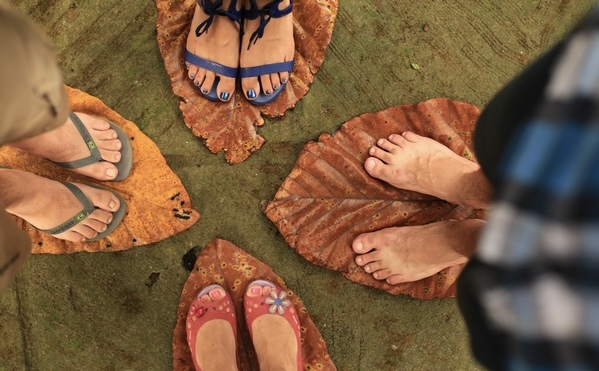
Everyone knows these fundamental truths; we wish for them on birthdays, New Year's, anniversaries, and various celebrations. Many modern people do this without sometimes thinking about the fact that these are the most important goals, and the order of priority tasks does not always align with them. Are we heading towards these goals? Sometimes there is no time to think about it. Everyone talks, wishes, often sincerely and from the heart, but once said, it’s forgotten… Few people actually follow through.
We are following the path of a globalized society, living by its rules for some reason, without questioning them. But are there really rules about how and where you should live? How to die? What to achieve? What should you do? What should you like? Who are you, really? A cog in the machine or a creator? Why do you owe someone something? Everyone is born free and should live freely. Follow the law, respect parents and their values, work hard. But the line between freedom of choice and the illusion of freedom is very thin.
Balinese people believe that everything a person needs should be available today, now. Not later when you finish university or pay off a loan, but immediately and for life. Of course, some have already forgotten what their grandfather taught them. The unshakeable rock of values is crumbling under the onslaught of consumer products like Coca-Cola, which they cannot produce themselves but have somehow started to believe are absolutely necessary. For example, it seems impossible to live without probiotic yogurt. Ancient important rules from books like the Mahabharata, one of the strongest sources of Balinese wisdom, are easily extracted as formulas for happiness, such as being better today than you were yesterday. Respect, value, love, thank, and accept your parents. Forgive people, as no one is perfect. Be grateful to fate and life for all its lessons, love... Recognize sins in yourself, which can arise in the mind like any thought, but by managing thoughts in time, refrain from actions. Applying all these things in combination inevitably makes a person happy, loved, respected, healthy, and wealthy today. In the financial world, it seems unattainable, but among the Balinese, every third person lives this way. Creating something useful for society, loving oneself and close ones, is quite enough to live a fulfilling life. Cars, apartments, summer houses, and high positions are means, not goals. No one denies them, but it's a matter of priorities.
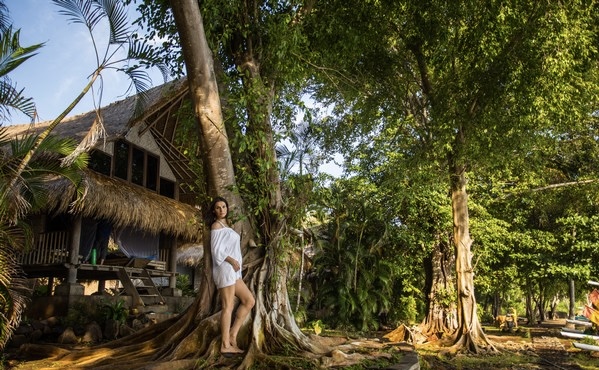
I suggest seeing the world of Bali not from the facade made of papier-mâché, plastic, concrete, and glass, but the real one, as seen by the people who live here. To do this, you need to, first, meet real people who touch not your wallet but your heart, and second, immerse yourself in the atmosphere that made them who they are. Only then can you compare them with yourself and objectively assess what they have better than you and what you have better than them, to accept this, try it on, and become better! To achieve this, you need to be in the right place at the right time and notice what is important. Then a phrase from Chinese sages will seem to you not just a nice quote but a meaningful, real fact from your life: no one returns unchanged from a true journey.

For those who haven't stepped out of their comfort zone for a long time, I propose doing this under vigilant and attentive control—managed, controlled, safe, and sufficiently comfortable. With wisdom, lift the curtain of stereotypes and clichés, and see the world as it is—diverse. But not through your own lens, but through the eyes of people who think completely differently and are also confident that they live correctly. By seeing the world through their eyes, you will understand whether they feel happy, and then you will know if they are living rightly. And of course, a vast amount of genuine exotic picturesque nature and vibrant events will help you embrace the thoughts of the Balinese.
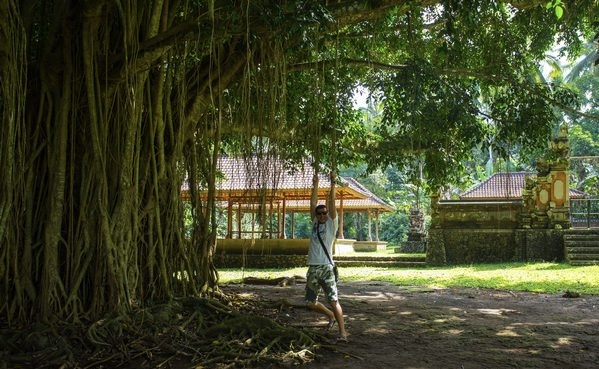
You can organize a ten-day trip on your own, and I’ll guide you on how to structure it. I recommend breaking it down into different blocks:
3 days is the minimum time needed to understand the eastern part of the island. This is a magical place where you can see the real Bali and meet kind Balinese people with open hearts. You can touch the magic of the island, ancient culture, and religion, which are the main factors that shape the native inhabitants of the island. The beauty of the east is spectacular: a volcano, beaches with crystal clear water, white and black sand, mountain roads winding through volcanic folds, jungles and steppes, plains and hills, and intricately shaped rice terraces hidden among small villages.
For Balinese miracles to happen, you just need to step out of your comfort zone. This new state of slight uncertainty will allow you to see the world without the templates that create stability and hinder change. For example, spend a night in amazing places. Bring a tent with you, which you can easily buy in Bali for $30, and a self-inflating mattress for $40. This will give you freedom and independence.
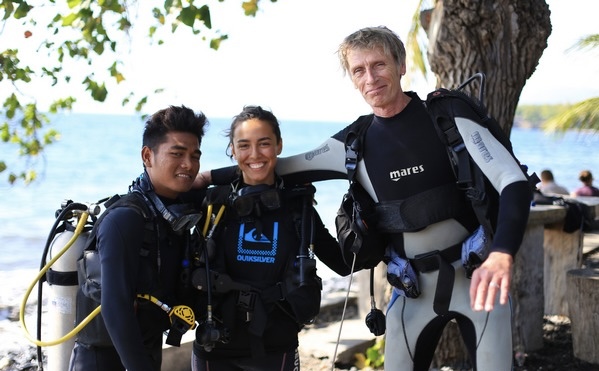
By scuba diving, you will learn to overcome your fears of real danger and unfamiliar unknowns. You'll learn to let go of expectations, which naturally lead to disappointments. Do you think great people, explorers of continents and distant shores, expected to find something? They likely believed in themselves and their abilities, knowing that success is inevitable as long as you don’t give up.
Visiting ancient villages on the island and talking with the native inhabitants, you can learn the wisdom of their ancient culture. Bali Aga, or pre-Hindu Balinese.
For example, when he, with a laugh, heals chronic back pain. After all, there are no 100% healthy people, and many have minor health issues that domestic medicine doesn't fundamentally solve; it merely suggests accepting and living with them.
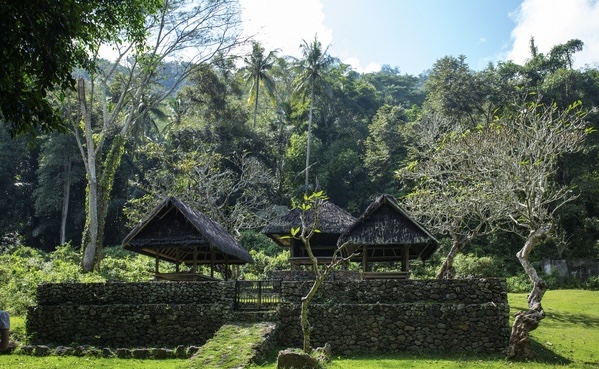
From the east, you will head to the neighboring small island of Gili Meno or Gili Air, where there is no gasoline, and the main mode of transportation is horses. You can walk around these islands in about an hour along the coastline. Wide and deserted white sandy beaches, calm ocean, rich underwater world – there you can learn free diving, and giant sea turtles will delight you with their grace as a reward for your achievements. Two nights are enough to enjoy the tranquility of these almost uninhabited islands.
On the sixth day, as you return to the island, it's essential to stay in Ubud, where a deposed king once founded the city of craftsmen, inviting the most talented artists, wood and stone carvers, sculptors, painters, and enlightened individuals. This fascinating world of contemplation and tranquility will unfold to you through yoga sessions or walks through the rice fields. It would take several months to fully understand Ubud in all its diversity, but you can grasp its essence in two or three days.
On the seventh day, check into a hotel in Kuta, hang out, and watch the Australians. They are good although noisy folks. They came to relax. Their positive attitude and ease of communication won't bother anyone. If you manage to tune yourself to the wavelength of accepting people who live differently from you. :)
Day 8: Surfing
Bali is famous as a surfing resort, so upon returning to civilization, start mastering surfboards with the aim of catching your first green wave. On the first day of lessons, everyone will ride the foam, regardless of their physical condition or skills. Hawaiians were the first to ride boards – it was a ritual, a proof of courage. You will come to understand yourself in the face of ocean waves, which is interesting to everyone, and it will be revealed to those who overcome their fear. Lessons take place in safe conditions and under the careful supervision of professional instructors. All you need to do is work on yourself.
Day 9:
Dedicate a whole day to exploring the beaches and "strong" places of the island. Balinese people practice Hinduism – a unique religion based on paganism, with Buddhist and Hindu motifs that make it harmonious and highly cultural. In their pagan understanding, based on feelings and emotions, Balinese people build temples in places where powerful natural events occur: huge trees, rocky mountains, picturesque hills, small islands in the ocean, caves, or energetically selected points on the ground. Perhaps we will be able to understand why the temple is located precisely in this place. The architecture of the temples may not dazzle with variety of forms and colors, but understanding the reason for the temple's location will likely provide answers to many questions. By visiting the most beautiful beaches of the island, each with its unique atmosphere, you will feel the difference and capture a huge number of stunning photographs.
Such a vacation program is scalable, as its creation results in multi-year travels; without losing interest, you can travel for two weeks. Its improvisational component allows for changing routes and places, dedicating more time to what you like, and delving deeper into what is closer to your mind and heart.
To implement such a vacation, don't hesitate to use various modes of transportation; try local minibusses, ride a scooter (just not in Kuta and not on highways if you haven't tried it before). Riding a bike is dangerous for those who think it's like riding a bicycle. You can embark on a journey with a Balinese driver-guide. Don't worry about letting go; everyone you meet, fulfilling their role, will be replaced by someone else, perhaps exactly who you need at that moment. Don't be afraid to experiment; open up to the island, and it will respond in kind.
I love the island of Bali very much, and I wish for you to fall in love with it too. I wish you the most exciting journeys.
You can add one right now!